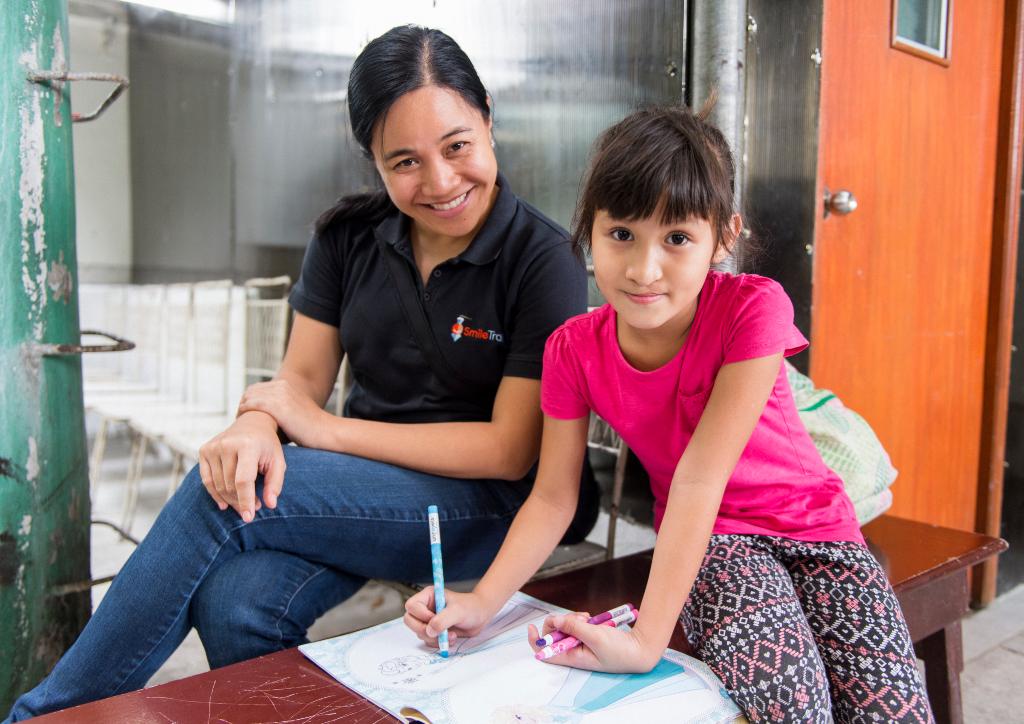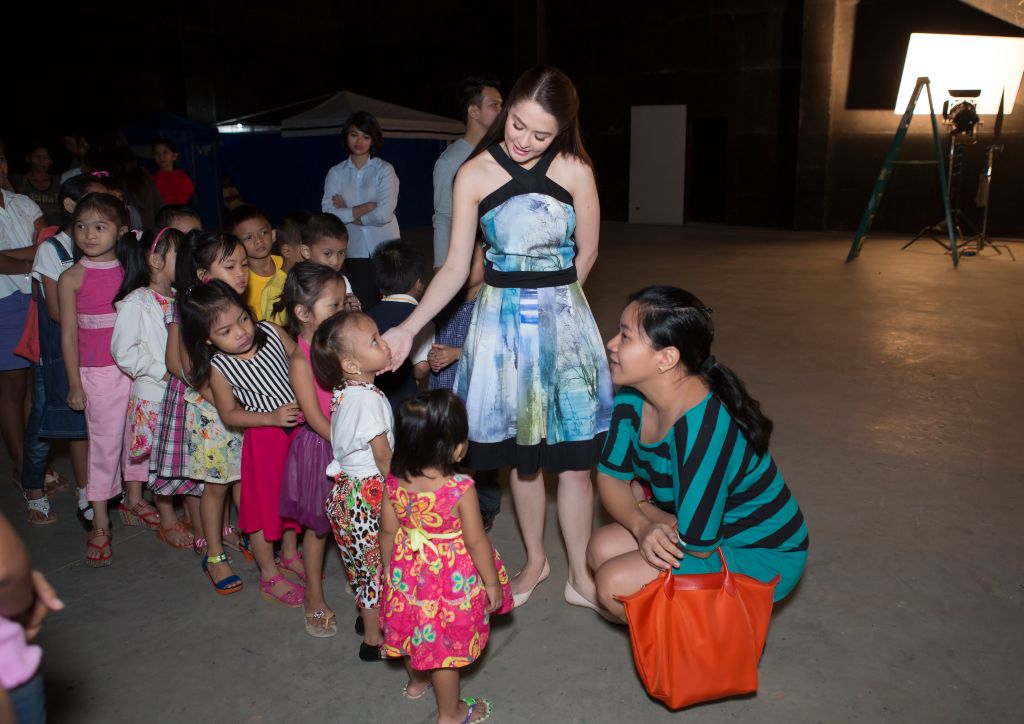“I realized it wasn’t just about providing cleft surgery to the person who needs it in front of me—It’s improving health care systems around the world.”
Solutions to everyday problems are most impressive when these can be replicated on a universal scale.
This is a feat achieved by Kimmy Coseteng, Smile Train’s vice president for Southeast Asia.

Since joining the world’s largest cleft-focused organization, Coseteng has doubled the reach of programs in the Philippines, increased the capacity of partner hospitals to provide comprehensive cleft care, and created local corporate partnerships to sustain programs in the country.
With her guidance, the organization was able to overcome the ultimate test on its local model’s sustainability during the COVID-19 pandemic.
Long Phase
“It has been very challenging on various fronts,” Coseteng tells Lifestyle Asia.
She said it’s more difficult to do fundraising now since many companies have challenges of their own and individuals would rather focus their financial resources on coronavirus efforts.
The most noticeable impact is in their programs, which are their main focus in the Philippines. Surgeries, in particular, are directly impacted since these are done in a hospital.
From conducting 5,500 to 5,800 surgeries yearly in the Philippines, Smile Train hit zero between April and May 2020 at the start of the pandemic.
At the time, the organization grappled with the uncertainty of the novel coronavirus while navigating through myriad restrictions in providing cleft care.
“Because of COVID, we have to follow a lot of restrictions and protocols for the safety of not just the patients and the parents, but also the hospital staff,” Coseteng explains.
Local governments and hospitals did not even allow cleft surgery in some locations. Consequently, patients experienced delays.
Things only began looking up, ironically, when conditions didn’t seem likely to improve.
By June and July 2020, people had realized the COVID situation wasn’t ending soon and they needed to formulate a safe way to help patients. Smile Train’s partner hospitals even resumed surgeries as soon as they were allowed by their respective areas.
“Because somebody with a cleft cannot wait forever,” Coseteng reminds.
Patients needed surgery to address issues on nutrition and speech, because they cannot feed or speak properly when their lip is still open and their cleft palate is not closed.
Thus, Smile Train continued its mission—all while following the policies and regulations of the Department of Health, the national government, and all hospitals.
Turning Frowns Upside Down
The organization was able to achieve this by providing additional funding to partner hospitals, surgeons, doctors, and nurses so they can adhere to safety protocols.
Of course, additional disinfection and sanitation between surgeries, along with fewer patients in a ward, meant lower productivity.
Whereas pre-pandemic operations were successive, everybody now has to leave the operating room after each surgery.
“Everything is sanitized, blue lighted, and all that stuff. So it takes about an hour between each surgery. Some partners, they could do let’s say 10 surgeries a day. Now they’re down to four. So that really greatly impacts our numbers,” Coseteng acknowledges.
Notwithstanding these limitations, they were able to make the process convenient for patients and their accompanying family members by providing personal protective equipment, as well as additional funding for COVID testing.
“This obviously will drive up our cost significantly, but it’s something that we were ready to support, because we really could not take the fact that we will keep the patients waiting. We couldn’t just sit around and wait for COVID to disappear. We really had to do something about it,” Coseteng argues.
Although surgery is the bigger component of Smile Train’s program, they were also able to invest in providing comprehensive cleft care during the pandemic. Just a couple of weeks into the country’s first lockdown, the organization launched its Speech Telehealth programs spearheaded by Coseteng herself.
This enabled them to reach patients in locations where there were never any speech pathologists. Partners would also look for different tools or ways to provide telehealth speech therapy services in order to better accommodate patients.
To further help others who still cannot access speech therapy services regularly, Coseteng led the development of the first Filipino Speech Language App designed for those born with a cleft.
Smile Train then began providing nutrition counseling services in response to the call of thousands messaging their Facebook page to ask for help. They partnered with different organizations with feeding and nutrition counselors who would inform new and expecting mothers about their concerns during sessions funded by Smile Train.
Through this initiative, they were able to support at least 200 mother-baby dyads over the past year. Counselors saved patients a trip to the hospital by virtually determining a baby’s measurements to assess whether they were healthy enough for surgery.
With A Smile
In terms of scalability, Smile Train’s model works because it depends on local partners, hospitals, and doctors nationwide who could provide community-based cleft care year round.
“The challenge we’ve seen especially in a country like the Philippines, where we have 7,000 islands, is that development or infrastructure is not the same everywhere obviously,” Coseteng raises.
They are able to overcome this geographical obstacle through what they call in-country outreach programs. Basically doctors who live in bigger cities like Cebu and Davao would travel to relatively close localities to perform surgeries.
“It’s not yet a perfect system, but it was addressing these gaps,” Coseteng cheers.

It became an eye-opener for many surgeons, who approached Smile Train as it provided them opportunities to serve their communities or train more surgeons so they can, in turn, set up a program in their hometowns.
“Really, it’s program expansion. It’s empowering and enabling local professionals to be able to provide care in their own communities. This is something that we’ve seen in other areas, not just in the Philippines, but in other countries as well,” Coseteng analyzes.
Specifically, Smile Train was able to educate and train cleft professionals in different parts of the country and the world.
They recently organized a webinar on breastfeeding and nutrition intended at first for a Philippine-specific audience. Considering the webinar’s English virtual format, they opened attendance globally with only 120 Filipinos comprising the 380-member audience.
Most of them were from Asia, especially the Southeast region due to the similar time zones and existence of local programs. Attendees include representatives from Afghanistan, Bangladesh, Cambodia, India, Indonesia, Laos, Mexico, Myanmar, Pakistan, Sri Lanka, Syria, the United States, and Vietnam.
Smile Train’s secret is that it is a very lean organization. Many of its employees have been working with them for a while, meaning they already have an idea of what works and what doesn’t, as well as what will be approved and what won’t.
They watch the budget very closely and are careful about how they spend the funding they receive. But what they are most judicious about is time.
“We did respond pretty fast. Also because we were not used to it that you’re kind of waiting for things to happen. So we don’t like that. We don’t like to wait for things to happen. We have to make things happen,” Coseteng frames.
All Smiles
This means recognizing that patients who need help are always the primary focus of the organization.

“Once we know that we are doing it for them, then things just kind of roll out nicely. We know that our objective is to be able to support patients who depend on us to be helped. We don’t want to be making them wait any longer so developing programs as fast as we could and engaging with like-minded people is really important,” Coseteng advises.
She recognized how the cooperation of speech pathologists and nutrition counselors was crucial in the success of Smile Train’s programs. Likewise, she believes even ordinary citizens with no background in health care or development work can make a difference.
Spreading the word, as well as fundraising or making a donation of any amount would invaluably support Smile Train’s programs for people who would otherwise not know that help was free or available.
“When I joined Smile Train, I realized it wasn’t just about providing cleft surgery to the person who needs it in front of me. It’s improving health care systems around the world so that if and when Smile Train is gone, the health systems have been in place. You’ve trained cleft professionals who can continue your work even if you’re not there anymore,” Coseteng concludes.
Photos via Kimmy Coseteng





